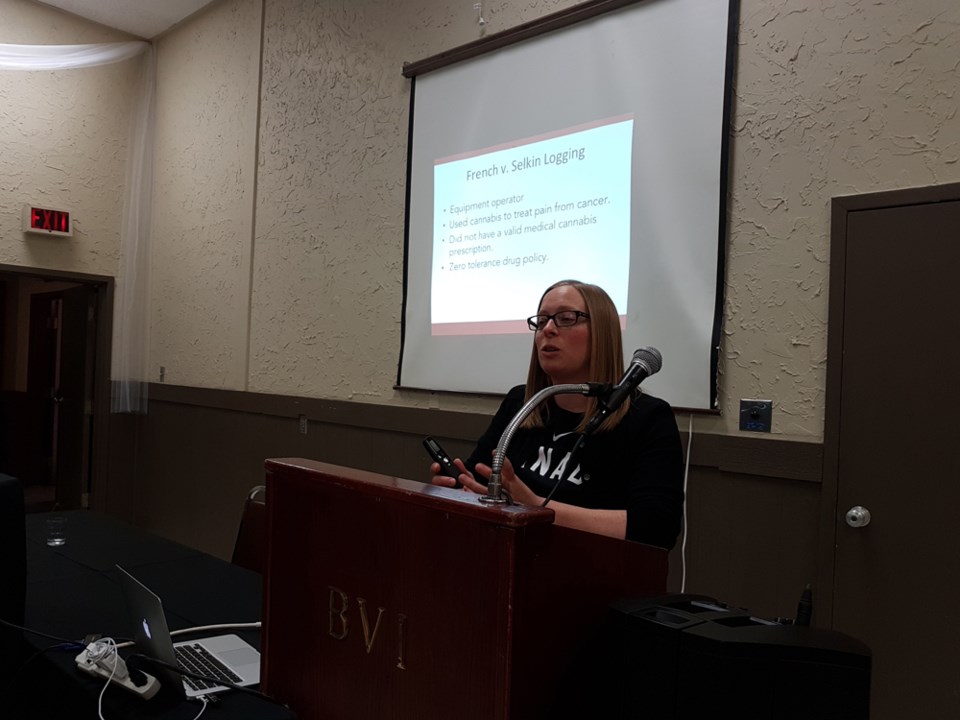With cannabis soon becoming legal, employers will have to learn how to deal with the substance in the workplace.
Karen Stokke, a learning manager with Cannabis at Work who presented on April 12 in partnership with Sagehill Community Futures, said it’s going to be something that employers can manage.
“We have a lot of tools in place already to be able to handle both the medical and the recreational side of cannabis, with our occupational health and safety, with our human rights and accommodation processes,” she said. “We have a lot of tools already, we just need to apply them and have corporate health and drug policies as well.”
When it comes to dealing with recreational cannabis, Stokke said there’s already rules about drugs and alcohol in the workplace that will still apply.
“When cannabis is legalized, that doesn’t mean you can come to work impaired, it doesn’t mean you can bring or use your cannabis at the workplace, and it doesn’t mean you can sell or trade cannabis in the workplace, either,” she said.
“You still have to abide by the occupational health and safety rules, which don’t allow for those things.”
Stokke said if somebody seems to be impaired when they come into work, that supervisors use reasonable suspicion methodology. They should look for signs and symptoms of possible impairment, like certain behaviors, speech, odour or appearance. Then with a company-wide drug and alcohol policy, supervisors can talk to their employers and arrange for drug tests.
The tests aren’t about discriminating against a cannabis user, it’s about maintaining a safe workplace.
As long as that methodology is followed, employers should be safe from legal retribution.
Companies that require drug tests for employment can still do that when cannabis is legalized.
“A person using recreational cannabis can’t necessarily use recreational cannabis on their own time and expect to still pass a drug and alcohol test,” Stokke said.
For medical cannabis, Stokke said it should be treated like other impairment-causing prescription drugs such as codeine or benzodiazepine.
“When looking at somebody with a medical cannabis prescription, you have to potentially look at their mental or physical disability, illness or injury that they’re being treated for and how that can be accommodated in the workplace,” she said.
Employees have a duty to tell their employer about using the drug for medical purposes, while employers have to try to accommodate, unless it causes undue hardship.




